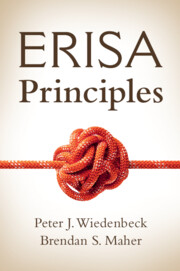Book contents
- ERISA Principles
- ERISA Principles
- Copyright page
- Contents
- Acknowledgments
- Table of Cases
- Table of Legislation
- Table of Rules and Regulations
- Part I General Considerations
- Part II Conduct Controls: Welfare and Pension Plans
- Part III Content Controls: Pension Plans
- 7 Accumulation
- 8 Distribution
- 9 Security
- Part IV Tax Controls: Qualified Retirement Savings
- Part V Health Plan Content Controls
- Appendix ERISA’s Legislative History
- Index
7 - Accumulation
from Part III - Content Controls: Pension Plans
Published online by Cambridge University Press: 15 February 2024
- ERISA Principles
- ERISA Principles
- Copyright page
- Contents
- Acknowledgments
- Table of Cases
- Table of Legislation
- Table of Rules and Regulations
- Part I General Considerations
- Part II Conduct Controls: Welfare and Pension Plans
- Part III Content Controls: Pension Plans
- 7 Accumulation
- 8 Distribution
- 9 Security
- Part IV Tax Controls: Qualified Retirement Savings
- Part V Health Plan Content Controls
- Appendix ERISA’s Legislative History
- Index
Summary
ERISA’s pension plan content controls constrain the terms of most deferred compensation programs in several broad areas. At the outset, the accumulation of pension savings is influenced by rules governing eligibility for plan participation, the rate at which benefits accrue under defined benefit plans, and when benefits vest (become nonforfeitable). To preserve a system of voluntary plan sponsorship, most matters were left unregulated, including the central design issues of a pension plan, namely, the extent of workforce coverage and the level of benefits. Where it chose to regulate, Congress restricted but did not eliminate freedom of contract. Instead of mandating particular plan features, it set minimum standards for certain key terms, leaving sponsors the flexibility to exceed the baseline. Legislative intervention was not directed to ensuring a particular level of retirement income. Instead, reliability is the principle animating ERISA’s pension content controls. The employer may craft the program to cover as many or as few workers as desired, at any benefit level it chooses, but once a pension promise is made, the statute backs it up by restricting plan terms that would undercut the commitment.
Keywords
- Type
- Chapter
- Information
- ERISA Principles , pp. 227 - 262Publisher: Cambridge University PressPrint publication year: 2024



